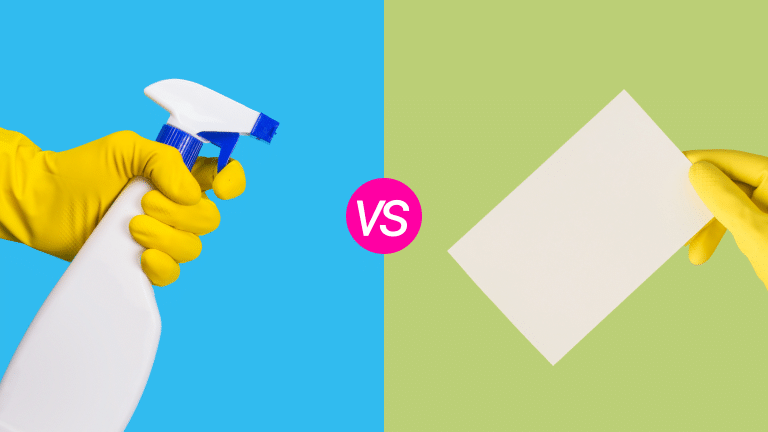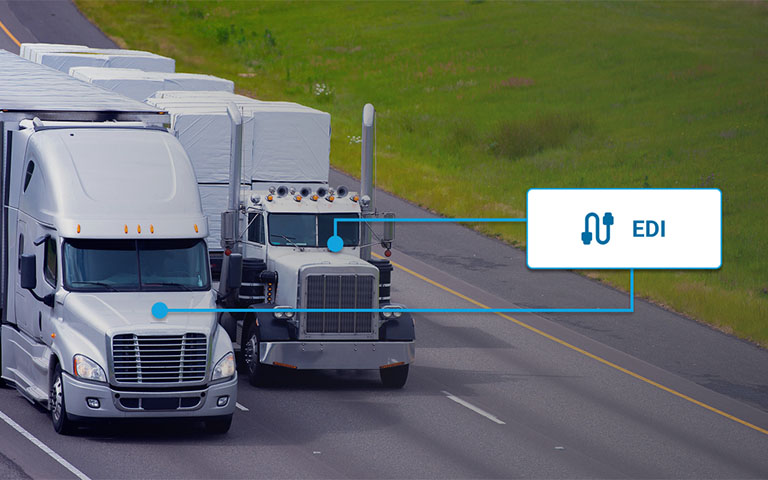Sustainable Spring Cleaning in Supply Chains

As the spring season approaches, it's time for many households and businesses to engage in the annual tradition of spring cleaning. But in recent times, the choice between big brands and smaller, more eco-friendly brands has taken center stage, especially as consumer confidence in big brands has been shaken in light of high-profile recalls of nearly 5 million bottles of Colgate-Palmolive brand Fabuloso products and 37 million bottles of scented Clorox brand Pine-Sol cleaners earlier this year.
However, it's important to note that even green products are not immune to recalls, as evidenced by the recent recall involving the 97% naturally derived and biodegradable detergent brand, The Art of Green. Although only 14,000 bottles of this brand were impacted, this recall highlights the fact that poor quality control can impact products across the spectrum, and even the most well-intentioned, eco-friendly brands are not immune to scrutiny.
So what does this potential escalation in the ongoing battle between big brands and smaller, sustainable ones mean this spring cleaning season, and how might this impact the choices that businesses — and in turn, those in charge of managing their supply chains — ultimately make? Let’s explore the issue.
The rising preference for eco-friendly products
A recent survey of over 1,000 US adults by the Sustainable Brands community found that two-thirds of American consumers are willing to pay more for sustainable products, with the majority of them believing that eco-friendly cleaning products are healthier for them and their families. This increasing trust and purchasing preference among consumers has brought a direct impact on market growth as well, with the value of the sustainable cleaning product industry growing twice as fast as the overall cleaning product market, and was valued at $278.52 billion in 2022, and is projected to grow at a Compound Annual Growth Rate (CAGR) of 7.36% to reach $398.05 billion by 2027,
So while many still view green cleaning products as a niche market, this very well may be set to change, and this shift in consumer preferences towards eco-friendly options has forced businesses to adapt and offer more sustainable alternatives.
The eco-friendly battle for sustainable packaging
Another trend in the green cleaning product market — and one that includes direct benefits for supply chain operational costs — is the rising popularity of refillable containers and waterless 'tabs' or 'sheets' of cleaning products, which reduce both waste and the carbon footprint caused during shipment.
Those waterless options in particular could mean big changes for supply chains if they gain mainstream popularity. More than 90 percent of a typical bottle of cleaning product is simply water, so by having consumers add water at home accomplishes multiple environmental and cost benefits. First off, it reduces their volume, thus reducing the number of boats and trucks needed to transport them. Secondly, it reduces their weight, thus further reducing fuel and carbon emissions associated with shipping them. And it reduces the use of plastic packaging by requiring a smaller container — or even no container at all — to hold the product, which could reduce the amount of global disposable plastic packaging waste by an estimated 20 percent or more. And considering that a recent study revealed that 86 percent of consumers aged 45 and under are willing to pay more for sustainable packaging, there is a clear push toward the reduction in the amount of plastic packaging that these options deliver.
How businesses can respond to changes
In response to changing consumer demand, many businesses are planning to shift their supply chains to incorporate more sustainable practices. This includes sourcing raw materials from eco-friendly suppliers, optimizing transportation routes to reduce carbon emissions, and investing in packaging that is recyclable or reusable. As sustainability becomes a key driver in consumer purchasing decisions, businesses need to proactively plan and adapt their supply chains to meet these changing expectations.
As a technology provider offering an advanced transportation management system (TMS), we understand the challenges and opportunities that the ongoing battle between big brands and smaller, more eco-friendly brands presents. But as always, spring cleaning can be a great opportunity to start fresh — and today that should mean looking into new, more sustainable options for both cleaning products and the way they’re transported.
Some of the benefits of starting fresh with an advanced TMS for businesses looking to adapt to meet shifting consumer demands include:
- Carrier selection and rate comparison: A TMS can help you find the most suitable carriers for your new types of goods based on their expertise, equipment, and capabilities. It can also provide rate comparisons, enabling you to select the most cost-effective options.
- Route optimization: Changing the types of goods shipped may require new routes or transportation modes. A TMS can analyze and optimize routes based on factors such as distance, transit time, and cost, ensuring efficient and timely delivery of your new goods.
- Regulatory compliance: Different types of goods may have varying regulatory requirements, such as hazardous materials handling or cold chain management. A TMS can help manage compliance by providing necessary documentation, automating processes, and ensuring adherence to rules and regulations.
- Real-time visibility and tracking: As you change the types of goods being shipped, it's crucial to maintain visibility throughout the supply chain. A TMS provides real-time tracking and updates, enabling you to monitor shipments, identify potential issues, and take corrective action when necessary.
- Warehouse management integration: A TMS can integrate with your warehouse management system (WMS) to optimize inventory management and storage for your new goods. This can help minimize storage costs, reduce handling errors, and improve overall supply chain efficiency.
- Performance analysis and reporting: A TMS can generate reports and analytics that provide insights into the performance of your transportation processes when shipping new types of goods. This data can help you identify areas for improvement, measure the impact of changes, and make informed decisions about future strategies.
- Scalability: As your business expands and changes, a TMS can scale to accommodate your evolving needs. This includes managing the transportation of new types of goods, adding new carriers or transportation modes, and adapting to changes in market conditions or customer requirements.
Overall, implementing a TMS when changing the types of goods shipped can lead to cost savings, improved efficiency, and better customer service.
What’s next?
The battle of brands in the context of sustainability has long been an ongoing and evolving phenomenon. However, as consumers become increasingly willing to pay more for sustainable products, businesses need to optimize operations and reduce environmental impact in their supply chains to meet this demand — and Shipwell delivers the necessary tools and insights to get you there.
For more details on how Shipwell TMS can help your business meet sustainability goals, reduce costs, and adapt to shifting consumer demands, speak with one of our experts today.


.svg)








